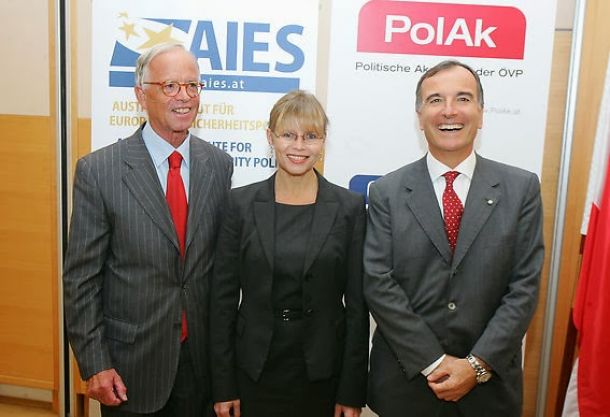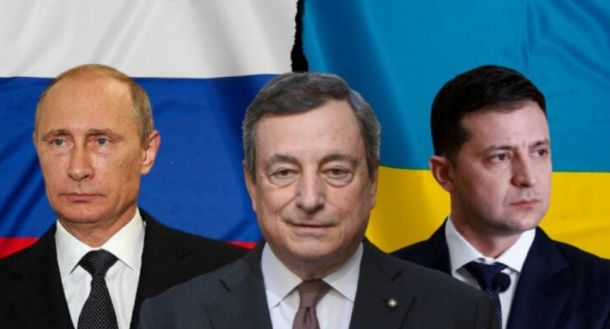The European Council on Defense: New Prospects

The best way to have a new vision for Europe is to go back to the original vision of the founding fathers.
They had a political vision. In his personal letter to Konrad Adenauer, Robert Schuman anticipated his plan for Europe and explained that the objective of his proposition was not economical, rather mainly political.
And the Schuman Declaration of 1950 clearly stated that the European Economic Coal and Steal Community was the first step towards the United States of Europe.
The current economic crises, the fact that while the US has already began exiting the crises, Europe is still sinking into it, shall remind us that unless we build a political union we won’t be able to solve our problems.
For instance, a fully functioning banking Union is badly and urgently needed.
And the intergovernamental method should be replaced by strong and accountable economic European governance.
And we have an institutional and moral duty to look at the younger generations asking for more, not less Europe, in the years to come.
What is at stake it is not only the Euro, but the European vision itself, that is to say life as we know it today.
Let’s talk for once about the cost of having less Europe, by going back to national egoisms – Europeans take for granted free, open common market, freedom of circulation.
Europeans sometimes forget that the European Union has given all of us peace, wealth, opportunities that are unprecedented in the history of the Continent and that cannot go lost.
The future of the European integration cannot and must not be played only on the ground of economic policies, although fiscal and banking union are indispensable.
Europe being awarded the Nobel prize for peace has honored us, but that award calls us to new responsibilities. The first, and more complex, from among those responsibilities is to exercise the traditional European “soft power” as an actor able to speak with one voice, even outside our borders. When addressing major challenges of foreign policy and security, a divided Europe is weaker and certainly unable to influence the choices that both traditional and emerging “global powers” must adopt on global issues. I cannot imagine Europe excluded from the “table of choices” when it comes to prospects for peace, security and stability in the Mediterranean, the Middle East, Africa, the Balkans; that is true moreover where the challenges of terrorism or poverty, of mass migration or environmental protection, or – finally – of global trade must be faced together.
The first pillar of the Italian foreign policy, starting from De Gasperi, and still today, is Europeanism. More Europe, political and non-bureaucratic, is needed; and, today, even more, meant as the unique and common voice of Europe in the foreign and security policy. In 2003, with Javier Solana, we worked successfully to speed up the adoption of a European strategy that States have sometimes implemented, and some other time – unfortunately- not adequately followed. After the Treaty of Lisbon, ten years later, in a completely different world, the European strategy must be adapted to the new challenges which are essentially political.
I am fully aware that De Gasperi’s dream of a common European defense is still difficult to be implemented, even after sixty years, and that many countries have different sensitivities if compared to the one that led Italy to imagine a European army for the future.
In any case the stronger coordination, the optimization of the reducing resources, and the adoption of operational decisions common to a plurality of States and open to accession by all those who wish to do that, are all achievable goals.
A European Security and Defence policy is an essential tool to give Europe a political role on the global stage. The simple sum of the States is no longer enough.
No one, even the biggest and the strongest among the EU States, can address global challenges alone.
Next EU Council on Defence, in December, will have to transmit a clear, visionary political message to the public.
Don’t give up EU responsibility, enshrined in the Lisbon Treaty, to contribute to global peace, stability, security.
Don’t underestimate, like it happens often, the global and asymmetric threats against the West.So we should strengthen mutual trust, cohesion and solidarity within (and also improve the coordination between) EU and NATO.
In particular, some concrete results are badly needed and, I think, within the reach:
1. REAFFIRM EU POLITICAL WILL TO AVOID DIVISIVE SOLUTION ON DEFENCE COOPERATION.The Council should take into account different positions from M.S. and, in particular, avoid to encourage the establishment of “groups of willing” or the isolation of UK which a crucial M.S. also on security/defence.
Other thing is the possibility of a “division of labour”, depending on individual M.S. better knowledge on some regional areas or on better capacity on some good practices or technological instruments.
2. MANDATE TO H.R. ON THE UPDATE OF 2003 STRATEGYThe current strategic vision and objectives on ESDP is enshrined in the document presented in 2003 by H.R. Javier Solana, during the Semester of the Italian Presidency.
Many of the points are still valid, but some of them should be updated, and some should be strengthened or integrated.
The Council should mandate the High Representative to work on this, and to present a proposal before the end of her term in office.
3. QUICK IMPLEMENTATION OF EU COMMON DEFENCE MARKETEU Council should take a strong position on the quick and full implementation of Directives, already adopted, on defence common market. This will save significant percentage of national procurement funds and will reduce delays.
EU defence common market will also contribute to give EU Defence Agency a stronger coordinating role.
4. BETTER ACCESS TO COMMON CAPABILITIESPooling and sharing initiative, as well as Smart Defence in NATO, focus on better spending resources, particularly in times of economic crisis. We also need to decide how to guarantee an effective and quick access to common capabilities.
The EU Council should try to address an issue of highly political nature: how to guarantee that M. S. provide a predetermined capability after receiving notice that this is required.
We should think of a political strategic decision, involving GVT and PARL of each M.S., on the availability once and for all, of assets at a predetermined level of readiness and deployment.
Maybe, E.D.A. and NATO, for their respective responsibilities, could certify transparently what is made available and by whom.
In a period of financial restrictions, we have to balance and harmonise the budget cuts, avoiding uncoordinated horizontal reductions in national budgets.
To this end, we need leadership and political choices:
a) on where we need fresh investments (I think of new technologies and cyber crime) and where we can cut (ex. in “static” and not enough “interoperable” areas)
b) on how to further develop partnerships with non EU and non NATO States
c) on how to guarantee better access to common capabilities, within EU and between EU and NATO.
We need highly political decisions leading EU defence and NATO to complementary – and never alternative – visions.
On the other hand, EU cannot be seen simply as the “soft power” appendix to the strong US producer of security!
I see Europe and America together, as “manufacturers of security” also by gradually rebalancing their own respective contributions.
Finally, I think December Council should have some concrete deliverables.
I think first of updating where necessary the 2003 ESDP document.
I think also of a strong step forward towards EU common defence market, giving also EU Defence Agency a stronger coordinating role.
Here is a challenge where our credibility is being tested.
A stronger EU ally is certainly in the interest of US, that is looking at ASIA but is also looking at us more than ever.
The task of leaders is to win the hearts and the minds of citizens, as the founding fathers of Europe did.
De Gasperi rightly assessed that a statesman looks to the next generations, not to the next election. We owe that to our citizens, and first of all to the young: starting from the renewal of its institutions in the next year, the Europe of the future must have a strategic vision of its global role as an actor of peace and security, otherwise we will only face the danger of technocratic or partial horizons.
Let no one believe that a Europe weak and politically divided on the international scene gets more chances to protect its citizens from attacks and weaknesses on the economic ground, or even in terms of development and growth.




